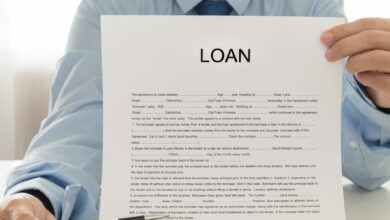Rental properties: The risky claims of quick cash and passive income

Rental properties: The risky claims of quick cash and passive income
The internet seems to be overflowing with information regarding rental properties as a quick route to financial success through passive income now more than ever. It seems like everyone is saying real estate investing is simple, whether it’s a course vendor pushing investment properties or social media celebrities flaunting a pricey watch that was paid for by their empire of short-term rentals.
However, there is nothing passive about real estate investing, and it is undoubtedly difficult. You are responsible for managing an investment property, which has expenses and dangers similar to any other business. If your investment property venture doesn’t work out, you can be left with a losing asset that you can’t sell without suffering a significant loss.
Unless you manage to strike oil on your land or produce a hit song, passive income does not exist. You have to pay money to create money and take on risk if you want returns greater than the interest on a bank account. There is no such thing as a free lunch when it comes to investing, as the saying goes. Nothing can be obtained for free.
5 justifications for investing in rentals, along with comments
What, then, first draws people to investing in properties? There are psychological and economical factors to consider. Don’t forget to look at these points in the context of the larger picture.
Reasons to consider investing in rental homes
Points to consider as the overall image
Real estate is material. Most investments are essentially figures on a screen, much like our money. It might be reassuring to own an investment that you can see and feel.
The potential for investment in your property is unaffected by your inability to view it in person. Additionally, since a property is limited to one particular area, it is by definition not varied.
Investment properties have the potential to increase in value and provide a source of income. Owning a physical investment might be comfortable, but it can feel even better if it generates income for you each month, which you can then sell for a profit eventually.
Even after deducting all anticipated future expenditures, many investment properties still yield poor returns; it’s challenging to raise rents to a level where large positive cash flows are maintained without raising vacancy rates.
Leverage is possible in real estate. For most investors, mortgages offer the most leverage at the lowest cost. If things work out well, leverage can boost returns as it allows you to keep all of the gains from an investment that you haven’t paid for in full.
Leverage has a two-way effect and can make losses greater if you sell the property after its value drops.
Generally speaking, the stock market is more volatile than physical real estate. Although property values do fluctuate, they do so more slowly than stock prices.
Although the value of homes tends to fluctuate more slowly than that of stocks, selling a property requires time and cannot be done quickly. If prices have already dropped, you could discover that incoming “low-ball” bids are more in line with the going rate for fair market value.
There could be tax advantages to rental homes.
The tax advantages of renting are intricate and sometimes exaggerated. For instance, when it comes time to sell, depreciation recapture alone may result in a sizable additional expense. Furthermore, even if tax benefits seem good in principle, we don’t think they should
Expenses to consider
Running investment properties well may be difficult and time-consuming, and there are a lot of outside variables that can affect your total results and peace of mind.
Investors in rental properties should carefully weigh all associated costs, including the potential effects of unforeseen rises in those costs over time. What would happen, for instance, if a property that is now cash flow positive saw a 20% increase in taxes and insurance expenditures in a single year but rents did not? This is being witnessed directly in many sections of the nation, where expenses have increased by over 20% in many instances.
- Would the monthly revenue, even if the property were still cash flow positive, be sufficient to cover major repairs that suddenly became necessary? Over time, rising property values often result in greater taxes, and inflation in the cost of construction materials can cause insurance rates to rise significantly. Other factors and dangers to think about are as follows:
- Interest rate changes have an impact on rentals and housing prices.
- regulations favoring tenants that, in some situations, can stop evictions even when a renter hasn’t paid rent in years
- Negligent or combative renters
- high rates of vacancy
- elevated unforeseen maintenance/repair expenses
In summary
In the end, locating an underperforming rental property is challenging, just like locating any other type of investment with the potential for above-average returns. When making a commitment, it’s crucial to be realistic when projecting rent and other expenses far into the future, even if diamonds can be hard to locate. It might not be a wise investment to buy a property if the expected income is so low that growing expenses result in you having to spend money each month simply to be the owner.
Speak with one of Empower’s financial experts if you’d want additional information about assessing real estate investments or controlling risk with a diversified portfolio. Those who meet the requirements can get a free assessment of their financial




